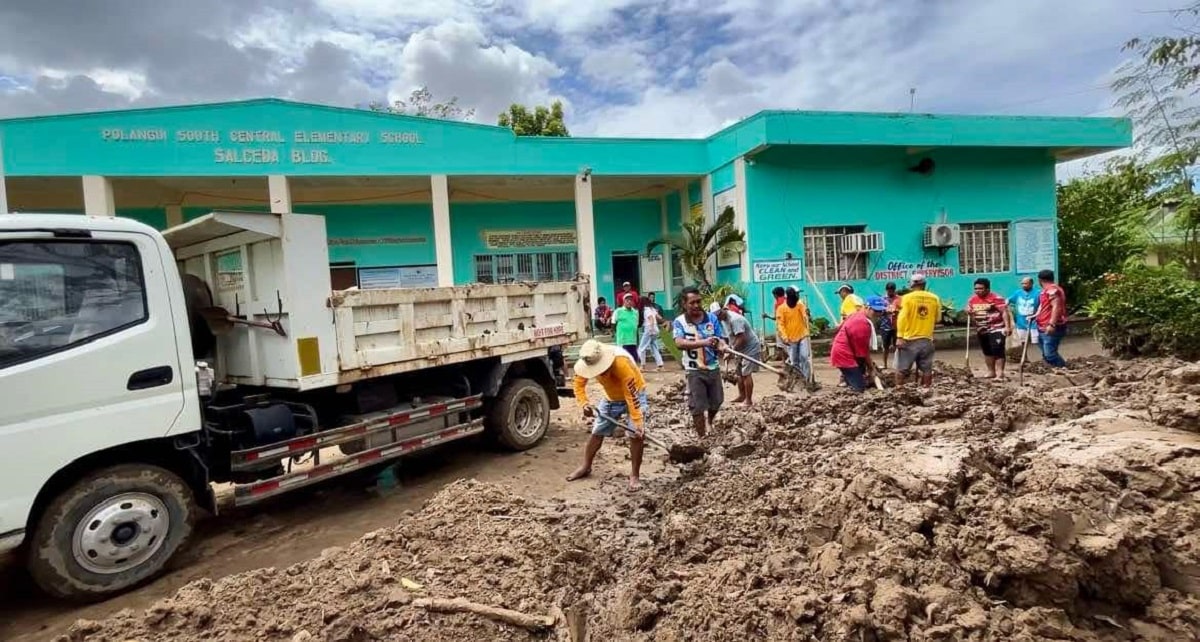
CAMPUS CLEANUP Parents help community volunteers clear the thick mud at Polangui South Central Elementary School in Polangui, Albay, on Nov. 6 when floodwaters caused by heavy rains dumped by Severe Tropical Storm Kristine (international name: Trami) receded. —Michael B. Jaucian
POLANGUI, ALBAY, Philippines — Schools across Bicol reported at least P299.67 million worth of damage after Severe Tropical Storm Kristine (international name: Trami) hit the region last month, according to partial assessments by the Department of Education (DepEd).
Deo Moreno, DepEd Bicol regional disaster risk reduction and management coordinator, reported on Tuesday that 520 schools in the region were affected by flooding and landslides.
Reports showed at least 816 classrooms were destroyed, while 1,250 classrooms had major structural damage.
In response, DepEd Bicol has allocated P102.63 million from its disaster preparedness and response program funds to support cleanup, clearing operations, minor repairs, and the construction of temporary learning spaces and temporary water, sanitation, and hygiene facilities.
“These funds have been distributed to division offices across affected areas to enable a swift recovery and restore normalcy in classes throughout the region,” Gilbert Sadsad, DepEd Bicol director, told the Inquirer in a private message on Tuesday.
Amid the disruption, families of students affected by the storm are appealing for assistance as many lost their belongings, including school supplies and personal items, to the widespread flooding when Kristine battered Bicol from Oct. 22 to Oct. 23.
Class resumption
As of Tuesday, at least 490 schools and 2,363 classrooms across the region are being used as evacuation centers.
Despite the widespread damage, most public schools in Bicol have resumed classes but several heavily affected schools remain closed.
In Camarines Sur province, five schools in Iriga City are still not ready to reopen due to extensive damage.
Meanwhile, in Naga City, also in Camarines Sur, the resumption of classes in 43 schools has been delayed to Nov. 11.
In Albay province, schools in the towns of Polangui, Libon and Oas are also unable to accommodate students due to thick layers of mud left after the flooding, according to Maria Cristina Baroso, DepEd Bicol project development officer, in a separate interview on Tuesday.
“Schools that have not yet been cleared are holding classes through alternative learning modalities with students receiving printed modules, learning activity sheets, or asynchronous online lessons,” Baroso said.